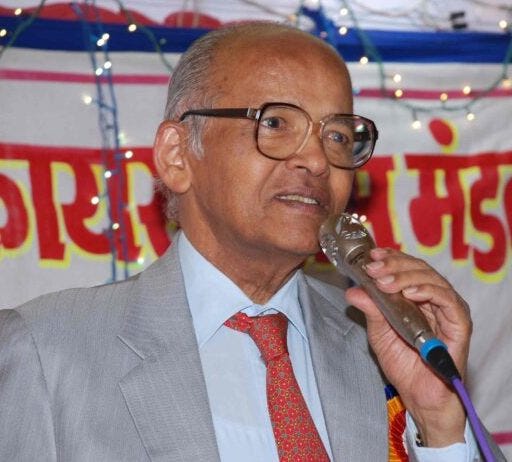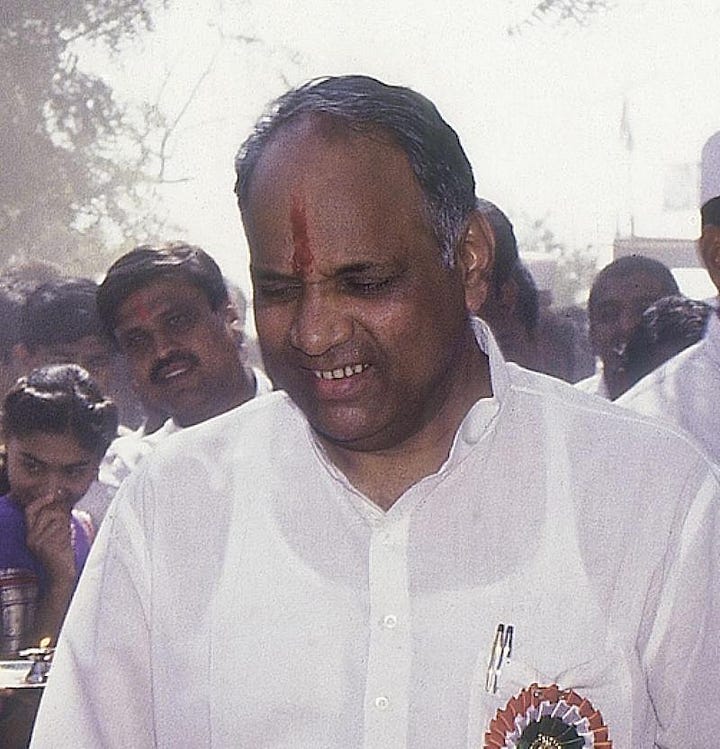The story of IUCAA, Part 5: Quo Vadis, IUCAA?
Overcoming hurdles in finding a home for the Inter-University Centre for Astronomy and Astrophysics
The search for a suitable site for IUCAA was proving to be difficult. The GMRT project managed to land on the university campus. This had been possible because there was an agreement between TIFR and Pune University under which the TIFR Physics Faculty had agreed to lecture at the M.Sc. level. Some of us commuted to Pune regularly under this programme. The programme had developed a friendly relationship between TIFR and Pune University. At that time, TIFR requested and received some land to house GMRT laboratories.
However, TIFR later discontinued the programme because very few senior faculty members liked lecturing to students. Some of them looked upon teaching as an indication of failure to do research. Exceptions to this feeling were shared by very few, like Udgaonkar, Jha, Baba, and myself, who argued that teaching improves one’s own perspectives on the subject. We gave examples of distinguished scientists like Hoyle, Wheeler, Feynman, and Rees, who enjoyed teaching–but to no avail! After a trial for two years, TIFR unilaterally terminated the arrangement, citing a lack of faculty support. Hence, when I approached Pune University requesting twenty acres of land, the response was negative. There was a reaction that TIFR got our land and then abandoned us! Both Yash Pal (Chairman of the UGC) and I tried to convince the Vice Chancellor that our proposal was sincere and that having IUCAA on the university campus would bring many benefits, but to no avail. Although the VC was friendly to the IUCAA programme, he was under local pressure not to agree to our request.
Having reached an impasse, I sought an extreme way out. Writing to the then Prime Minister Rajiv Gandhi, I appealed to him to help solve our land problem. I did not expect any response and was not surprised when there was none. In the meantime, I prepared myself for a lecture visit to France, which had been arranged long before I got involved with IUCAA matters. I was to spend two months as a Visiting Professor at the College de France in Paris.
The day before I was to leave for Paris, I received an urgent telephone call from the Mantralaya, the seat of the Government of Maharashtra. The Chief Minister wished to meet me: could I come and see him right away? Wondering what it was all about, I turned up at the Chief Minister’s office. I knew the CM, Shankar Rao Chavan, was a good administrator. He immediately came to the point. The Prime Minister’s office had requested him to help me get a suitable plot of land for IUCAA. How much did I need? Where did I want it to be? I supplied the relevant details, whereupon he smiled and said: “Done!”
He called in his IAS Secretary, Mr DasGupta, and introduced me to him. “Mr DasGupta will pursue the matter until it is complete. He will be in touch with you.”
So, the letter to the PM had not been in vain! On July 19, 1988, Mr DasGupta called me to his office and smiled as he handed me a copy of the Government Resolution assigning 20 acres of land on the university campus. I told him that on that date, I had turned 50.
A very welcome birthday present!
I later learned that the primary motivator for the IUCAA project at the Prime Minister’s Office was the PM’s Principal Secretary, B.G. Deshmukh, who was keen to see meaningful development coming to Pune.


Two incidents are worth recording. I received an urgent phone call from Naresh when I was in Paris. Unlike his usual steady humour, I sensed that he was agitated. He had just seen off Charles Correa on the train to Mumbai after a futile visit to the proposed IUCAA site. Charles wanted to have a feel of the site so that he could visualize how the building complex would look. Afterwards, Naresh took Charles on a courtesy call to the VC. When Charles mentioned how much he looked forward to working on such a pleasant site, the VC burst out saying that there was no such possibility and he should look elsewhere! The outburst completely stunned both Naresh and Charles… setting them wondering about CM’s commitment. “Let us drown our shock in something hard,” said Naresh and entered a good hotel…only to learn that because of a Muslim holiday, no alcohol was to be served that day!
As they say in a Sanskrit shloka, misfortunes never come alone.
DasGupta clarified the situation. The University would be informed only after fait accompli.
The fait accompli was televised. Sharad Pawar had succeeded Shankarrao Chavan, in a political reshuffle. To show that he meant business, he had the local TV channel cover the ‘event’ of the CM handing over documents of IUCAA to its Director. Only the previous day I had attended an informal discussion with a largely hostile university faculty on whether or not IUCAA should be welcomed. A vociferous minority’s opinion was against welcoming IUCAA, although the silent majority was for giving it a try. Of the former group, many would assure me that the Government would not allow any ‘outsiders.’ Although I knew that the government had already made the decision to welcome IUCAA, I did not mention it, as I expected that the announcement would come from the government, as it did the following day.




Wow, this is such an interesting story, Prof. Narlikar. Two things are new to me here. The first one being it was the refusal of the TIFR scientists to come to Pune University (to teach the students) which ended this wonderful program (of which I was a fortunate student back in 1986-88 batch). I was always under the impression that it was because most students of this program eventually chose to leave the country to pursue higher research, that ended the program. The second eye-opener was that Pune University leadership was so much against building IUCAA within its campus. I would have thought your reputation as a famous Astrophysicist and a great educator should have been enough to convince them of the merits of establishing this institution within the University Campus, not to mention the fact that you were, by no means, an "outsider" to this place! That said, I'm glad the political leadership at the National and the State level had your full backing that ultimately laid the foundation of IUCAA.
Thank you for sharing these stories with us.